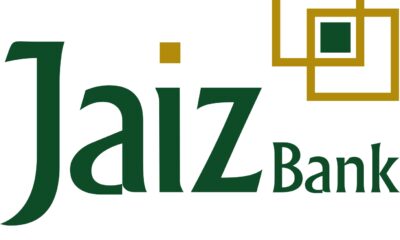- Banks, Others Pay N578.114bn Dividends to Shareholders
A total of N578.114bn dividends has so far been declared for payment to shareholders by companies that have held their Annual General Meetings for the 2018 financial year.
According to the latest data obtained from the Nigerian Stock Exchange by our correspondent, Dangote Cement Plc paid the highest dividend of N16 per share, which translated to N272.640bn.
Guaranty Trust Bank Plc paid N80.84bn dividend, Zenith Bank Plc paid a total of N78.491bn dividend, Nestlé Nigeria Plc paid N30.517bn, Access Bank Plc paid N17.772bn and Stanbic IBTC Holdings Plc paid N15.361bn.
Nigerian Breweries Plc, Dangote Sugar Refinery Plc, Seplat Petroleum Development Company Plc, FBN Holdings, Cement Company of Northern Nigeria Plc, Total Nigeria Plc, Fidelity Bank Plc, 11 Plc and Okomu Oil Palm Plc paid N14.634bn, N13.212bn, N10.641, N9.333bn, N5.257bn, N4.753bn, N3.187bn, N2.975bn and N2.862bn, respectively.
FCMB Group Plc paid N2.773bn, Nascon Allied Industries Plc paid N2.650bn, Julius Berger Nigeria Plc paid N2.640bn, Custodian Investment Plc paid N2.059bn, CAP Plc paid N2.031bn, United Capital Plc paid N1.8bn, and Transnational Corporation of Nigeria Plc paid N1.219bn.
Wema Bank Plc, Transcorp Hotels Plc and Africa Prudential Plc paid N1.157bn, N1.140bn and N1bn, respectively.
Other companies paid dividends in nine digits, while one company― The Initiates Plc ― paid in six digits (N444,990).
Some shareholders have expressed their displeasure over the dividends paid by the companies.
The shareholders, who expected to have received higher dividends, complained at different Annual General Meetings in Lagos, describing the dividends paid as meagre.
A shareholder with Union Bank of Nigeria, Mrs Olubukola Adesanmi, said, “The dividend is too small; we are just trying to manage it. We believe companies can do better.
“We know there are some issues facing the companies; they keep complaining about taxes, fines and all those things. What they are giving us is ‘kobo-kobo’ but we are just trying to manage it; it is not commensurate with the investments we have.
“I have shares in other banks, like FCMB, Wema Bank, and insurance and fast-moving consumer goods companies; the story is all the same. I have over 500 shares in Union Bank.”
Another shareholder, Mr Kehinde Oniwinde, said he always tried to register his displeasure during AGMs.
He said some companies had not even paid dividends in a long time and nothing was done to them.
According to him, it is unfair that shareholders are not being well compensated or not compensated at all in some cases.
Oniwinde said, “Companies can do better; we always encourage the companies to try and do better. What do you expect when you invest money? You expect to make gain; you don’t expect any loss; but if the loss comes, there must be a reason for it and it should not be a regular thing.
“For some of us that have quite a number of shares in companies, I think a lot more can be done. Those that don’t pay dividends should be probed; there should be a consideration for people that invest money in the company.
“I have been buying shares since the ’70s and I have shares in 72 companies; some about N20m, some N12m, and others less than N10m. I expect these investments to yield tangible returns.”
The President, Advancement of the Rights of Nigerian Shareholders, Dr Faruk Umar, said although no shareholder had come to him personally to complain, he confirmed that many shareholders had complained about low dividends at different AGMs.
He stated that he was also not pleased with the dividends paid by some companies, citing the United Bank for Africa Plc and FBN Holdings.
Umar said, “I also complained that the dividend paid by UBA should have been N1 rather than 85 kobo. But the group managing director said that they would try to achieve it next year.
“At the AGM of FBN Holdings, I also complained about the dividend but they gave a good explanation that they would try to achieve one digit Non-Performing Loan ratio, which would enable them to pay N1 dividend.
“If you look at the profitability, it is very high. If not because of the NPL ratio, they would have paid close to N1. So, I commend them for the 26 kobo they paid, which they said was from their insurance and merchant bank subsidiaries.”
Umar added that he was sure that when the group achieved one-digit NPL, it would be able to pay a dividend from the banking subsidiary, which would increase the amount to be received.
He said he had received explanations from banks, which said dividends were regulated by the Central Bank of Nigeria.
Umar said his findings revealed that if the NPL ratio was one digit, banks would not be outlawed by the CBN to pay dividends.
He said, “If you also look at the first-quarter results, many companies have not recorded losses; they have improved marginally on their profits. I am hopeful that the dividend next year will be higher than the one paid in 2018.”
The Group Chairman, UBA, Mr Tony Elumelu, noted that the year 2018 was not rosy for many companies because of the difficult operating environment.
He said the economy witnessed a slow recovery but the bank tried its best to deliver good results and value for shareholders.
He assured shareholders that being a shareholder himself, he would ensure that the request for an upward review of dividends was considered while hoping for better economic and operating environment.
The President, Independent Shareholders Association of Nigeria, Mr Sunny Nwosu, said a lot of regulatory changes, such as the IFRS 9, coupled with the difficult operating environment, contributed to the poor performance of companies.
He said although the dividends paid were below some shareholders’ expectations, companies that paid dividends should be lauded for even the little paid, adding that some companies had not even paid dividends in years.
The President, Constance Shareholders Association of Nigeria, Mr Shehu Mikali, said he did not believe the dividends were small.
He stated that the dividends were quite reasonable, taking into consideration the business environment that such companies operated in during the year.
Mikali said, “Most of the companies have been able to pay; so, we have to give kudos to them because it is not easy to do business in an area where there are insecurity and infrastructural challenges.
“The dividends are better than nothing, and this time is better because some of the companies that have not paid in a while paid dividends this year.”
He stated that rather than complain, shareholders ought to give advice to such companies on how they feel the company could better perform and urge the government to make the economic environment more palatable and conducive for companies.
He added that the government should also work on constituting the board of directors of the Securities and Exchange Commission to enable the apex regulatory authority of the capital market to perform better.
“If it is a government that knows what it is doing, these are areas it ought to have done something about. When all that needs to be put in place with respect to regulation had been done and the regulators are doing their best to investors’ interest, we will have better accountability from such companies and better returns,” Mikali noted.
He described the Nigerian economy as a viable place to do business, saying the government could do more to make it better.


 Billionaire Watch3 weeks ago
Billionaire Watch3 weeks ago
 Startups4 weeks ago
Startups4 weeks ago
 News4 weeks ago
News4 weeks ago
 News4 weeks ago
News4 weeks ago
 Bitcoin4 weeks ago
Bitcoin4 weeks ago
 Naira4 weeks ago
Naira4 weeks ago
 Forex3 weeks ago
Forex3 weeks ago
 Treasury Bills4 weeks ago
Treasury Bills4 weeks ago
























